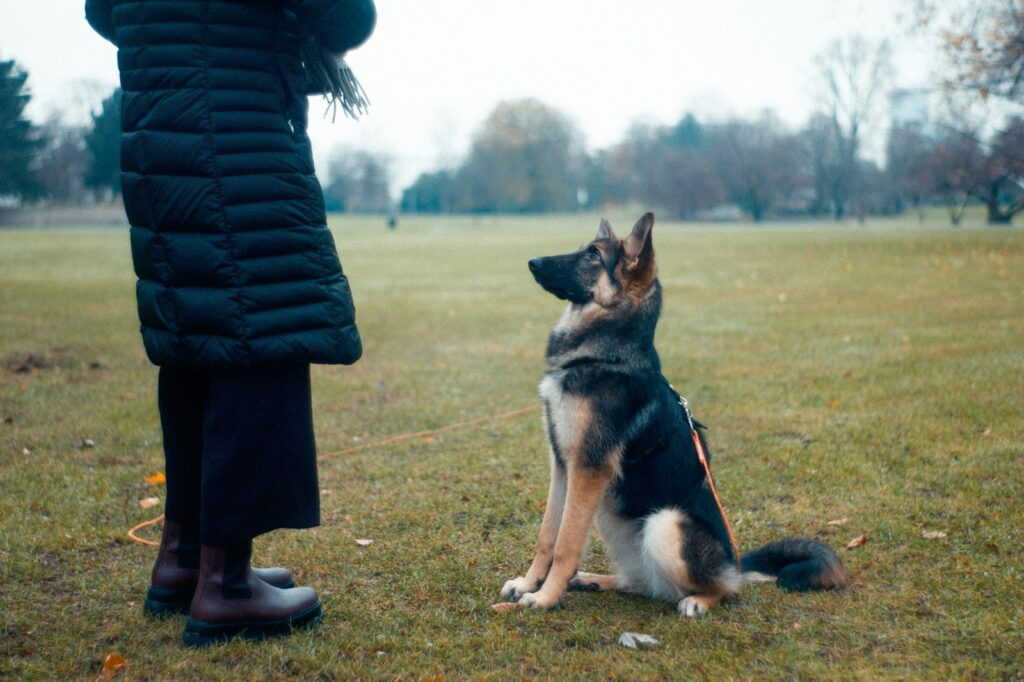How to Prevent and Stop Excessive Barking in Dogs

Excessive barking can be frustrating for dog owners and neighbors alike. While barking is a natural way for dogs to communicate, constant or uncontrollable barking often signals an underlying issue that needs to be addressed. Whether your pup barks at every passing car, out of boredom, or when left alone, training can help you regain peace and quiet.
At Off Leash K9 Training Missoula, we specialize in helping dogs develop better communication skills through effective training. In this guide, we’ll explore why dogs bark, how to manage excessive barking, and when professional help might be needed.
Why Do Dogs Bark? Understanding Common Triggers
Barking is a normal canine behavior, but understanding why your dog is barking is key to addressing the issue. Here are some of the most common triggers:
1. Territorial Barking
Does your dog bark every time someone walks past your house or approaches the door? This type of barking is often instinctive, as dogs feel the need to protect their home and family.
✔ Solution: Teach your dog a “quiet” command and reward calm behavior.
2. Boredom & Lack of Stimulation
Dogs with pent-up energy often bark just to entertain themselves. Without mental and physical stimulation, barking can become a habit.
✔ Solution: Increase daily exercise, add puzzle toys, and engage in training sessions.
3. Anxiety or Fear-Based Barking
Separation anxiety, loud noises, or unfamiliar situations can trigger barking as a coping mechanism.
✔ Solution: Slowly desensitize your dog to their triggers and provide comfort through structured training.
4. Attention-Seeking Barking
If barking gets your attention, your dog may use it as a way to communicate their needs.
✔ Solution: Ignore unnecessary barking and only reward quiet behavior.
5. Excitement Barking
Some dogs bark when they’re excited, such as when they see their leash or greet a visitor.
✔ Solution: Teach an alternative behavior, like “sit,” before giving them attention.
Training Techniques to Curb Excessive Barking
1. Teach the “Quiet” Command
A solid “quiet” command is essential for reducing unnecessary barking.
🔹 Step 1: Allow your dog to bark a few times, then say “quiet” in a calm, firm voice.
🔹 Step 2: When they stop barking, immediately reward them with a treat.
🔹 Step 3: Repeat consistently until your dog associates “quiet” with stopping barking.
2. Ignore Attention-Seeking Barking
If your dog barks for attention, food, or play, do not give in.
🚫 Avoid eye contact, talking, or reacting.
✔ Reward quiet behavior instead.
3. Redirect with Commands or Enrichment
If your dog starts barking, redirect their focus by:
🐾 Giving a command like “sit” or “place”.
🐾 Providing a puzzle toy to occupy them.
🐾 Taking them for a short training session.
4. Desensitize to Triggers
For dogs who bark at doorbells, passing cars, or other animals, desensitization can help.
✔ Gradually expose your dog to the trigger at a low intensity.
✔ Reward calm behavior and increase exposure slowly.
Tools That Can Help Manage Barking
Along with training, certain tools can help reduce barking:
🔹 Interactive Toys & Puzzles – Keep your dog mentally engaged and prevent boredom.
🔹 White Noise or Calming Music – Helps reduce anxiety-based barking.
🔹 Training Treats – Reward good behavior consistently.
🔹 Proper Exercise – A tired dog is a quiet dog!
When to Seek Professional Training
If your dog’s barking is out of control or rooted in anxiety, fear, or aggression, it’s time to seek professional help. Training can:
✔ Identify the root cause of barking.
✔ Provide customized solutions for your dog’s specific needs.
✔ Help build confidence in nervous or reactive dogs.
At Off Leash K9 Training Missoula, we specialize in behavior modification and obedience training to help dogs and their owners live harmoniously.
Struggling with Barking? Let’s Create a Custom Training Plan!
If excessive barking is disrupting your home, we’re here to help! Our expert trainers can create a personalized training plan to reduce barking and improve your dog’s behavior.
📞 Call (406) 946-3037 today or fill out the form below to schedule a FREE consultation!
With the right training, you can enjoy a quieter, more peaceful home while strengthening the bond with your pup! 🐶✨













